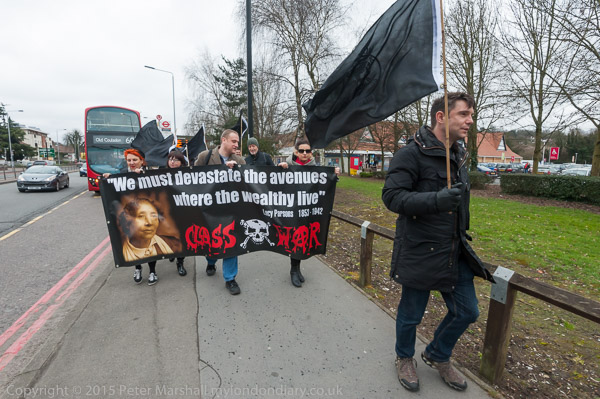
I began my work on Saturday 28th March 2015 meeting with a small group from Class War in Purley, a Surrey suburb south of Croydon, who had gone there to launch the general election campaign of Class War’s candidate Jon Bigger.
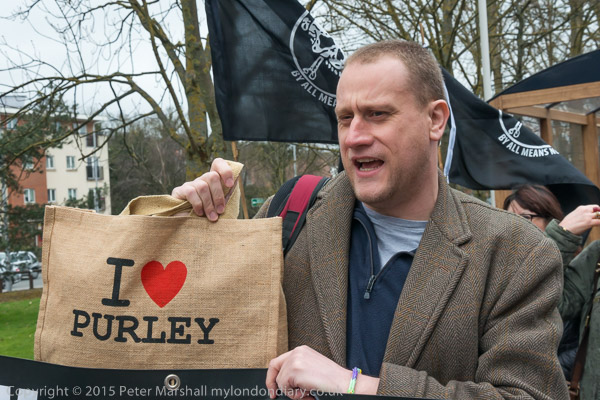
Jon is now Dr Jon Bigger, and his PhD thesis at Loughborough University was on “British anarchist group Class War with a specific focus on their approach to the general election of 2015. As anarchists tend to shun concepts like representation, even within their own ranks, as well as working towards the ending of the state, the groups’ electoral behaviour is worthy of close investigation. The study is ethnographic in nature providing a detailed account of how the group operates, its norms, values, structure and methods of organising.”
His work was very much as an insider, one of seven candidates the group backed at the 2015 election, all of whom lost their £500 deposits. The election campaigns were a form of direct action rather than an attempt to actually be elected, “one that ruptures the norms of electoral campaigning, providing the group with new avenues for activity.”
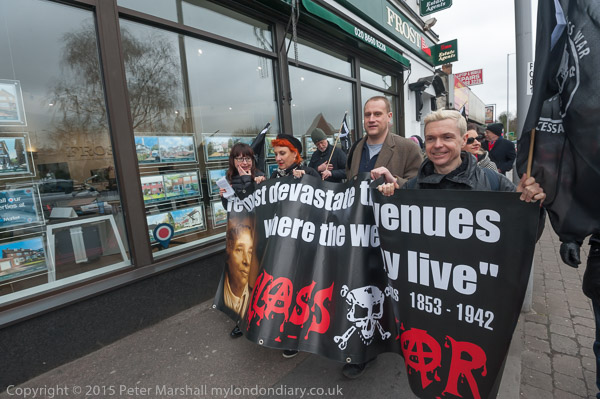
You can read more of Bigger’s views on his web site Jon Bigger: A Journal of Anarchy and in regular features elsewhere. South Croydon was always going to be a tough constituency for anarchist views and the 65 votes he got were probably more than expected – and recorded on the parliament web site as a 0.1% increase which perhaps compares well with the -16.9% of the Lib Dem candidate.
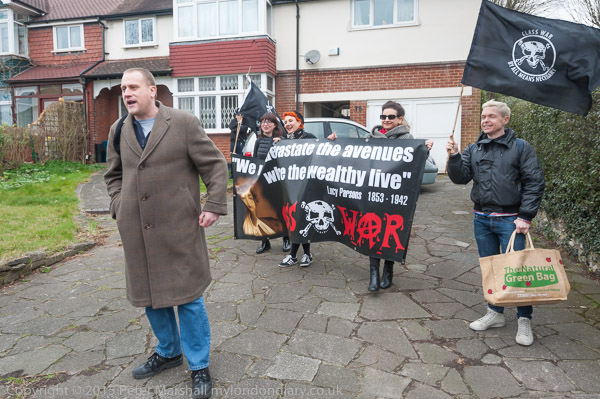
My main surprise about the event was the almost complete emptiness of central Purley on a Saturday morning – avery windy desert where Class War found it difficult to find anyone to talk to other than the group of police – roughly the same number as them – who doggedly followed them around happily earning their overtime. Purley man (and woman) appears to have lost the use of their legs, only managing the short distance from supermarket car park to supermarket.
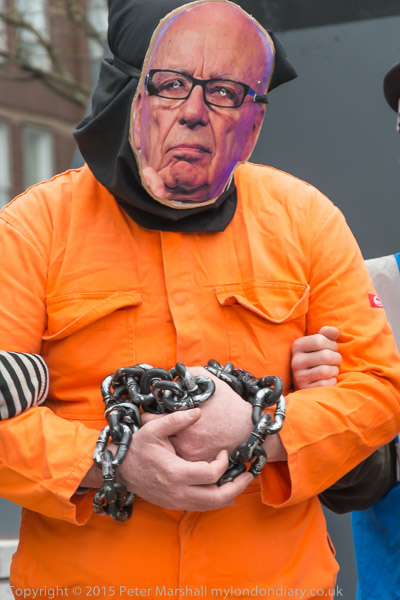
I was sorry not to be able to relax with Class War in the pub after their strenuous campaigning, but had to get back to London Bridge where Occupy Rupert Murdoch week was continuing outside the News International building at London Bridge with the People’s Trial of Rupert Murdoch.
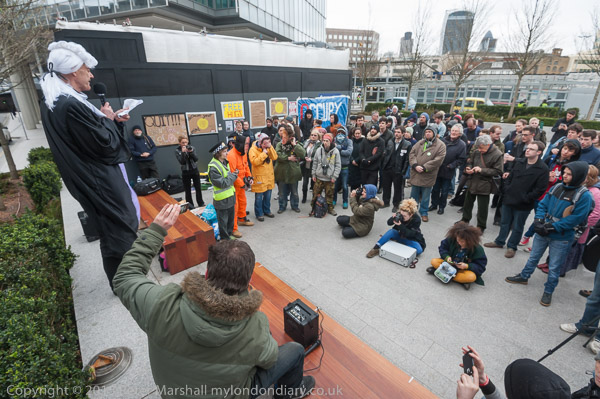
Inevitably he was found guilty, but the sentence seemed extremely mild. My account continues:
Max Keiser then spoke about the economic fraud and the basis of our economic system. London is the the world’s largest tax haven, and the whole basis of the City is corrupt, allowing people to borrow money on the basis of their earlier borrowing in a system that seems rather too much like the Emperor’s new clothes which began to crash in 2008. He ended by handing out StartCOIN scratch cards with free money on them (“The currency of the revolution”) but I think I lost mine. Always been hopeless with money.
Occupy Rupert Murdoch
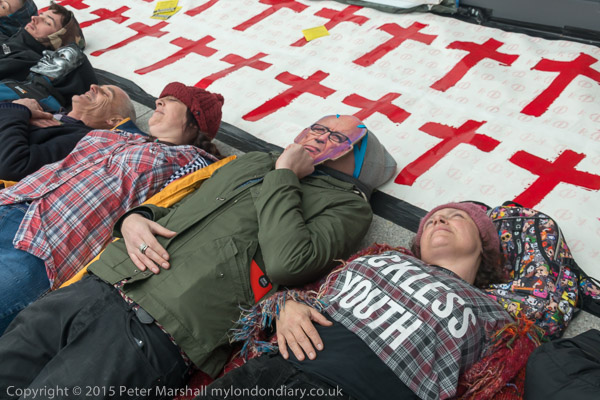
I decided not to stay on for the attempt to occupy the News International building at 7pm, but was tired and decided to leave it to my colleagues to cover. Rather to my surprise it was successful, with protesters managing to stay in the building for around 20 hours, but it got little or no media coverage. Even Murdoch’s competitors didn’t want to get on his wrong side by covering the event – as I commented “Those 5 billionaires obviously stick together and the BBC always seeks to marginalise any UK protest. Probably there was some important news about a minor celebrity hiccoughing.“
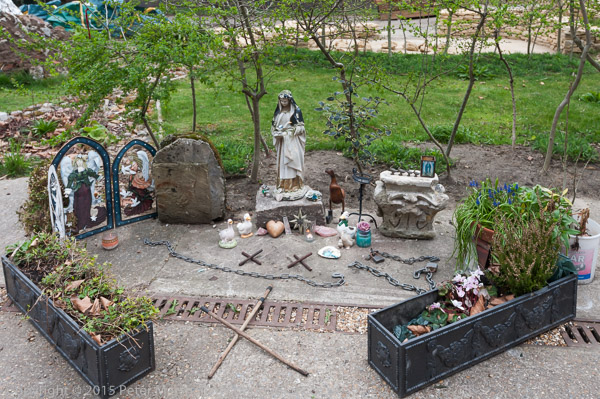
I’d earlier seen two men in what looked like Victorian dress on the pavement outside a pub close to News International and had gone over to talk with them. The told me that they were attending an Open Day at the nearby Cross Bones Graveyard. It’s a place I’d visited before, where outcasts who were refused burial in churchyards had been buried until it was closed as overcrowded in 1853. Among them were many ‘Winchester Geese’ prostitutes licenced by the Lord Bishop of Winchester from 1142 on, whose taxes and fines provided a considerable income for the clergy, and their young children. Museum of London excavations of part of the site carried out for the Jubilee Line extension suggest that half of the around 15,000 burials there were of children.
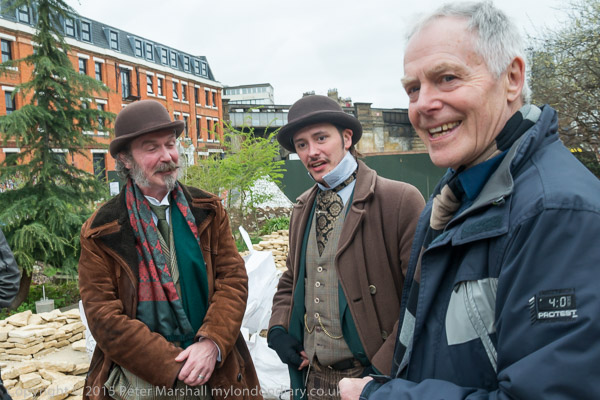
Local writer John Constable (right, above) revived the story of Cross Bones through his cycle of poems and mystery plays, ‘The Southwark Mysteries’, and regular ceremonies and vigils now take place there. In 2020 Southwark Council granted a 20 year lease to Bankside Open Spaces to protect and maintain the graveyard as a public garden of remembrance.
More at:
Cross Bones Open Day
Murdoch on Trial – Guilty as charged
Jon Bigger Class War South Croydon
All photographs on this and my other sites, unless otherwise stated, are taken by and copyright of Peter Marshall, and are available for reproduction or can be bought as prints.